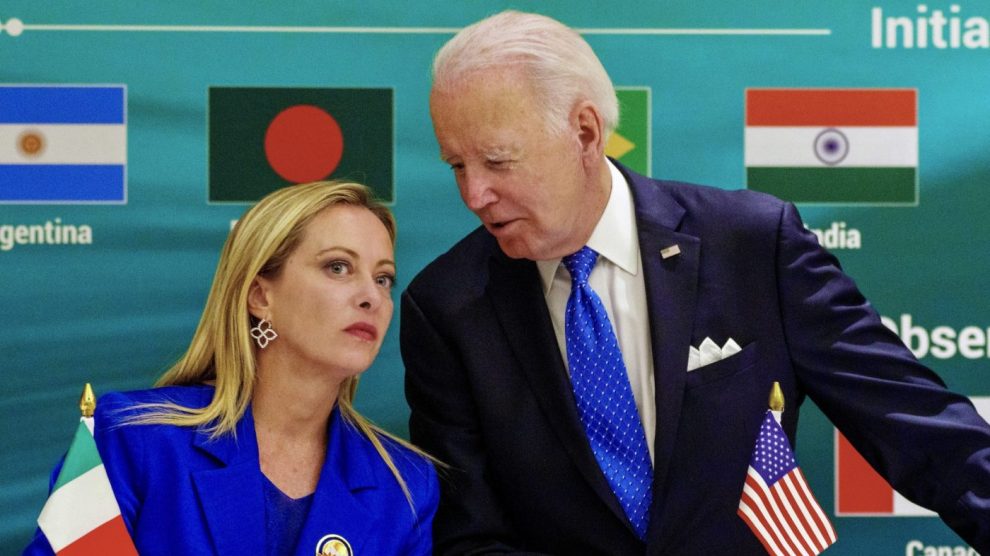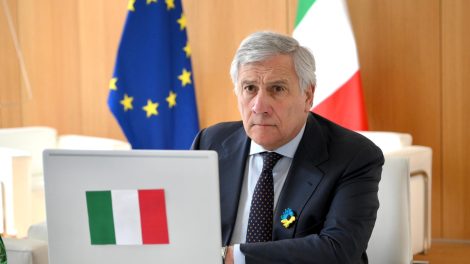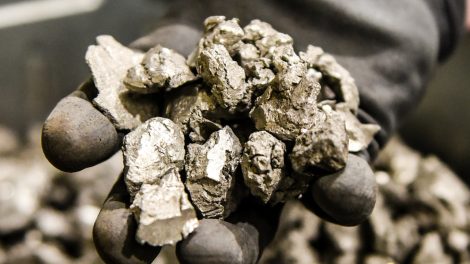Integrating approaches. When they met at the White House on Friday, United States President Joe Biden and Italian Prime Minister Giorgia Meloni touched upon a plethora of issues – from supporting Ukraine to containing instability in the Middle East – before setting their sights on longer-term strategic goals. That was the context for a key White House proposal: integrating Rome’s Mattei Plan, i.e. its renewed strategic projection in Africa, with development projects launched by the G-7 in third countries.
- The standout example would be the Partnership for Global Infrastructure and Investment (aka PGII/PGI), a G-7 initiative launched in May 2023 and geared towards funding infrastructure projects in developing nations.
- It’s based on the Blue Dot Network’s trust principles and it is intended to develop economic corridors (as well as integrated investments meant to spur development). As such, it doubles as the G-7’s response to the likes of China’s Belt and Road Initiative.
Strategic space + political interest. “We want to help build bridges between the Mediterranean and the Indo-Pacific, including in the areas of energy and digital connectivity, across Africa and the Arabian Gulf,” explained PM Meloni during her speech at the September G-20 event that New Delhi had dedicated to the PGII. The India-Middle East-Europe Economic Corridor (IMEC), a project that can give substance to the effort’s initiatives, was presented in that instance.
- PGII initiatives range from investments in transportation, supply chains, energy transition, information and communication technologies to agricultural systems, health and health security – all areas expected to lead to broader, transformative effects.
- The goal is to significantly increase the growth opportunities of certain regions of the world, with Africa holding the most potential…
- …and the focus on infrastructure, energy, health, food, connectivity and security closely resembles that of the Mattei Plan.
Getting the ball rolling. During the 2023 G-7 Summit in Hiroshima President Biden had supported the development of the Lobito Corridor, a potentially transformative economic link connecting the African continent from West to East. This commitment includes the development of a railway, set to become the main open-access transportation infrastructure linking the Democratic Republic of Congo, Zambia, and Angola. On its part, Italy identified the DRC as one of the pilot countries to initiate Mattei Plan co-operations.
- The room for overlap is clear even before considering that Rome’s effort is designed to allow further collaborations, starting with funding: a third of it is expected to be sourced from third parties.
- As for the Lobito Corridor, the US has announced its intention to table an initial investment of $250 million for rehabilitating the rail link between the port of Lobito, Angola, to the DRC border in Luau.
The name of the game. The Congolese corridor is a paradigmatic project because its broader goal is to lead the way in implementing rail connectivity in the region, enabling investment in an underdeveloped agro-ecological zone to support regional food security while also ensuring an open-access trade route for critical minerals (crucial to supporting the accelerating global demand for electric vehicles, central to current global dynamics) and other technologies underpinning the technology transition.
- But there’s more to the PGII, such as the Europe-Namibia Partnership on Sustainable Raw Materials and Renewable Hydrogen, or projects for wind power plants in Egypt and hydrogen in Morocco (both Mattei Plan-selected countries) as well as a general push toward the United Nations’ SDGs goals (which are seen by African countries as opportunities for momentum).
The Italian path. One of the Meloni government’s working objectives for 2024 is coordinating with partners to ensure that Italy’s strategic plan may complement (or even act as a driver) for G-7 projects, leveraging Rome’s specific prowess to amplify their effects. Further afield is further cooperation with structures like the World Bank and the International Monetary Fund, as well as private US and international financial institutions, and the development funds.
- The chief example would be Japan, a strategic partner to Italy, which is also keen on creating a corridor for its visions concerning Africa as evidenced by the attention Tokyo devoted to the PGII during the 2023 G-7 sessions.





